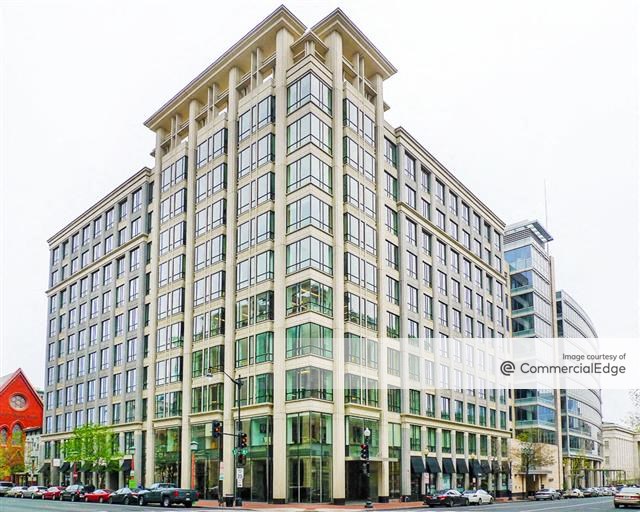Legislative Landscape: Seeking Reform
Real Estate Organizations Share Their Agendas for 2017
By Amanda Marsh
 The industry has entered 2017 in a political climate like no other. What does it mean for commercial real estate? Six organizations—the Real Estate Roundtable, the International Council of Shopping Centers, Building Owners and Managers Association International, NAIOP, the CRE Finance Council and the U.S. Green Building Council—share their legislative hopes and concerns for the coming year.
The industry has entered 2017 in a political climate like no other. What does it mean for commercial real estate? Six organizations—the Real Estate Roundtable, the International Council of Shopping Centers, Building Owners and Managers Association International, NAIOP, the CRE Finance Council and the U.S. Green Building Council—share their legislative hopes and concerns for the coming year.
Comprehensive tax reform: It’s time
“It has been 30 years since Congress last enacted tax reform legislation, and much has changed in that time,” said ICSC president & CEO Thomas McGee. “Reforming the code is not only necessary, it is important in shaping America’s economy for years to come.”
This year is ripe for action, noted John Bryant, BOMA’s vice president of advocacy, codes & standards—especially since the incoming administration has taken a strong stance on economic improvement and congressional leaders have signaled it as a priority issue.
There are many moving parts, like carried interest, 1031 exchanges and the corporate tax rate, according to NAIOP president & CEO Thomas Bisacquino—and if their treatment is modified, NAIOP will work hard to make sure commercial real estate is treated equally and not put at a disadvantage to other forms of investment. He is optimistic there will be a run at reforming the tax code, possibly within the first 100 days, so it is critical that commercial real estate get involved.
The Real Estate Roundtable president & CEO Jeffrey DeBoer also expects tax reform to be a high priority for Congress, but whether it actually gets to the president’s desk is an open issue.
“We plan to be at the table discussing how various proposals will affect real estate transactions, investment and values,” he said.
E-fairness: The fight continues
The current tax code has a loophole that requires physical retailers to collect sales tax yet not online-only retailers, putting the former at a significant price disadvantage. ICSC spent much of 2016 aggressively advocating for e-fairness legislation to level the tax playing field. Unfortunately, Congress was unable to address it, McGee noted, leading to a new series of legal challenges in South Dakota, Colorado, Alabama and Tennessee aimed at overturning a 1992 court ruling related to physical presence and taxation.
“If Congress doesn’t use their inter-state commerce authority now, the country will face a patchwork of differing state laws or the rulings from various courts,” he warned.
ADA: Stopping drive-by lawsuits
BOMA and ICSC have been focused on reforming the Americans with Disabilities Act, particularly since many real estate owners and tenants have been hit by “drive-by” lawsuits that focus on minor infractions or compliance issues. They threaten that plaintiffs will sue—or defendants could just settle.
“(This costs) business owners thousands of dollars due to the lack of a remedy period in current legislation,” said McGee. “Property owners should be given the opportunity to improve access for the disabled community in a defined period of time once an alleged ADA violation has been identified.”
“We plan to be at the table discussing how various proposals will affect real estate transactions, investment and values.”
Financial reform: Preventing a freeze
One of the top items on the CRE Finance Council’s agenda is Basel IV, particularly the capital and liquidity requirements imposed on U.S. banks.
“We believe they overshot the requirements, which will freeze capital more so than it has with Basel III,” said executive director Lisa Pendergast. “The particular capital and liquidity concerns for CMBS and the portfolio lending side of institutions—including the impact of Basel III’s liquidity coverage ratio and proposed new capital requirements under Basel IV—hit a tipping point in 2016. This caused us to step in and issue a letter to the key U.S. agencies—including the Board of Governors of the Federal Reserve, the FDIC (Federal Deposit Insurance Corp.) and the OCC (Options Clearing Corp.)—in hopes of getting some engagement.”
For the Dodd-Frank Wall Street Reform and Consumer Protection Act, the CRE Finance Council is polling its membership to determine which way they’d like to move in regard to risk-retention rules.
The Real Estate Roundtable will also spend time with the banking committees and federal regulators to discuss financial institutional regulations that are in need of reform, including Dodd-Frank and various securitization and banking issues.
Infrastructure & real estate investment: Build it up
Infrastructure investment should be a critical item for lawmakers, executives contend.
“There hasn’t been enough investment, and strong infrastructure is critical for the success of our industry and the entire nation,” said Bisacquino.
Trump has been very interested in pursuing that investment, pointed out Taryn Holowka, USGBC senior vice president of marketing, communications & advocacy. “(However), it will take significant work for the new administration, House and Senate to agree on how such investment is financed and the means for leveraging public and private funds.”
On the other side of the investment coin, the EB-5 Immigrant Investor Program received another short-term extension until April 28, 2017, “but it needs serious reform in regards to integrity and transparency with investors and projects,” cautioned DeBoer. “The Real Estate Roundtable is in favor of a long-term extension and believes that a major, comprehensive reform will happen.”
Another focus for the Roundtable is gaining a clearer definition of foreign pension plans and how they can invest in the U.S. through the Foreign Investment in Real Property Tax Act of 1980, as there are still technical issues that need clarification.
Energy efficiency: Get greener
Energy issues will continue to be a high priority for the USGBC, NAIOP and BOMA.
BOMA will be looking at policies as they relate to energy efficiency, “often the No. 1 controllable operations cost for buildings,” Bryant said. “By promoting better efficiency targets and understanding upfront costs and ROI, building owners and operators should be able to save more money.”
The USGBC will focus on support for key federal activities that encourage robust private-sector investment in high-performing buildings, Holowka said. These include both financial services—such as tax incentives for energy-efficiency investment in buildings—and programs such as the
Energy Star Portfolio Manager.
DeBoer added that the Tenant Star program needs a lot of regulatory classifications to make it more helpful to tenants, so the Roundtable will spend time on that issue.
The Republican majority: What it means for real estate
While it’s early to tell what the GOP majority means for the industry, the executives exercised cautious optimism. They noted Trump’s business background may lead to policies that reduce regulatory burdens, grow the economy, create jobs and stimulate consumer spending. But while it is easier to move an agenda when one political party rules, there needs to be some sort of compromise between Republicans and Democrats, they warn—lest we fall back into a divisive political climate where nothing gets done.
Originally appearing in the CPE-MHN Guide to 2017.







You must be logged in to post a comment.